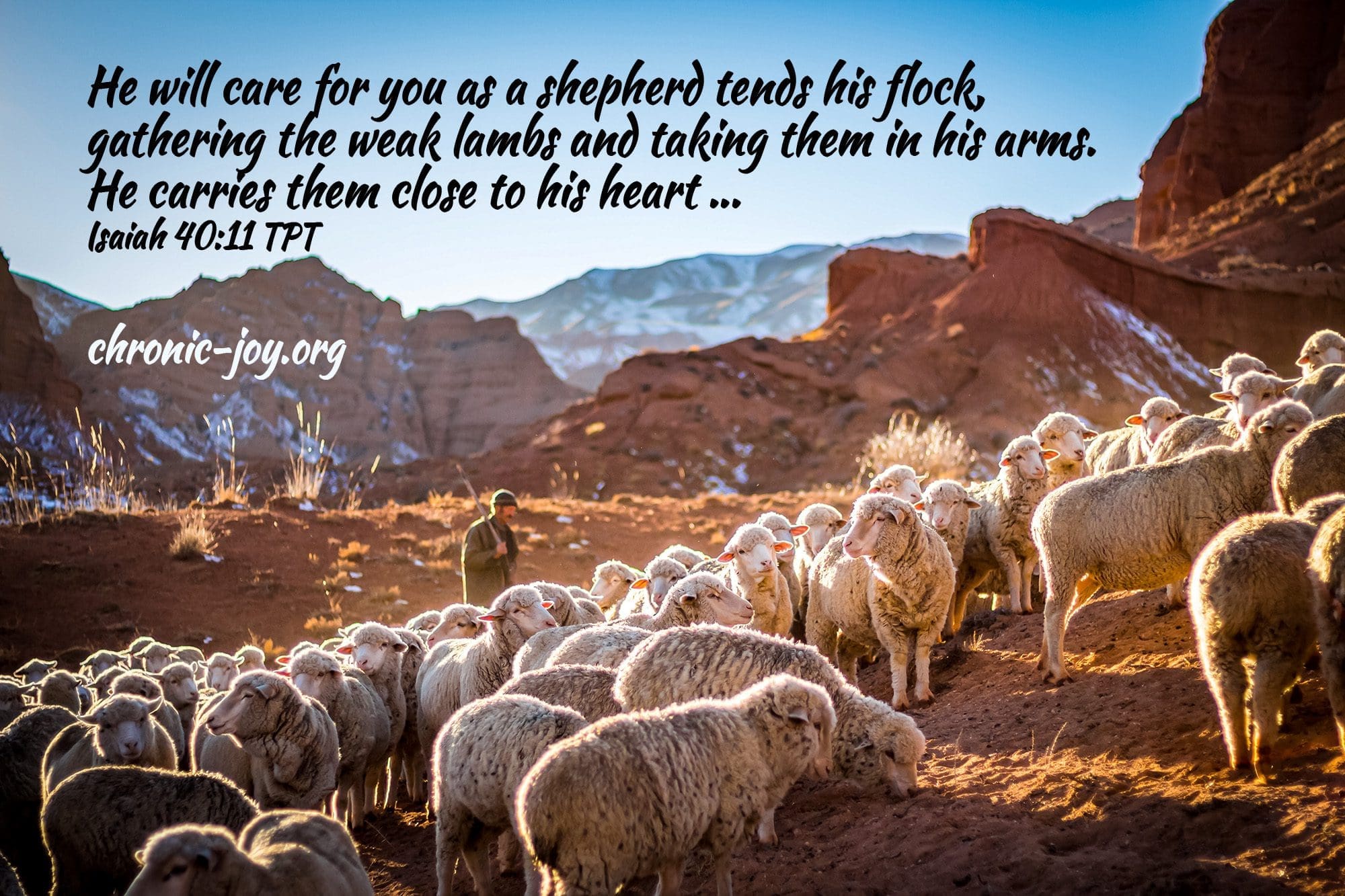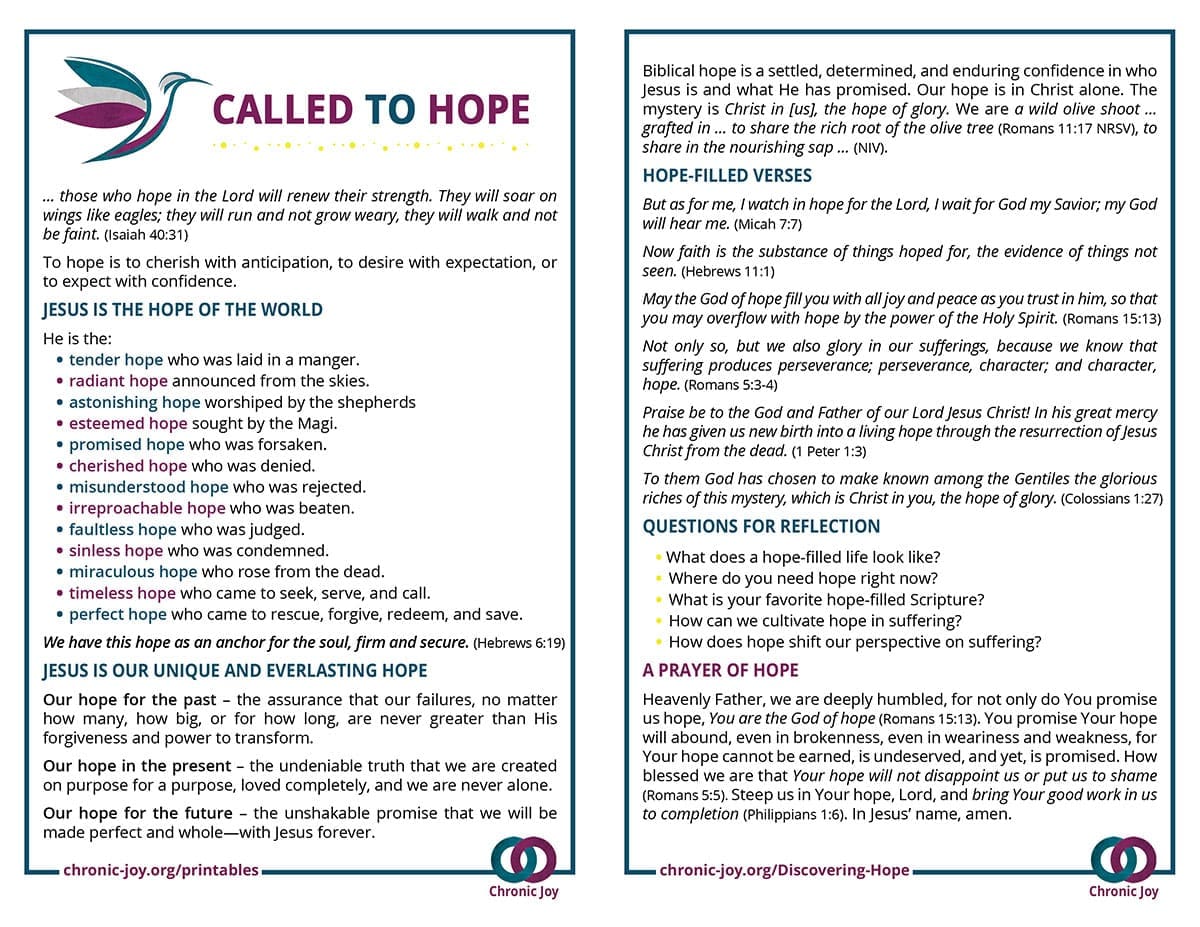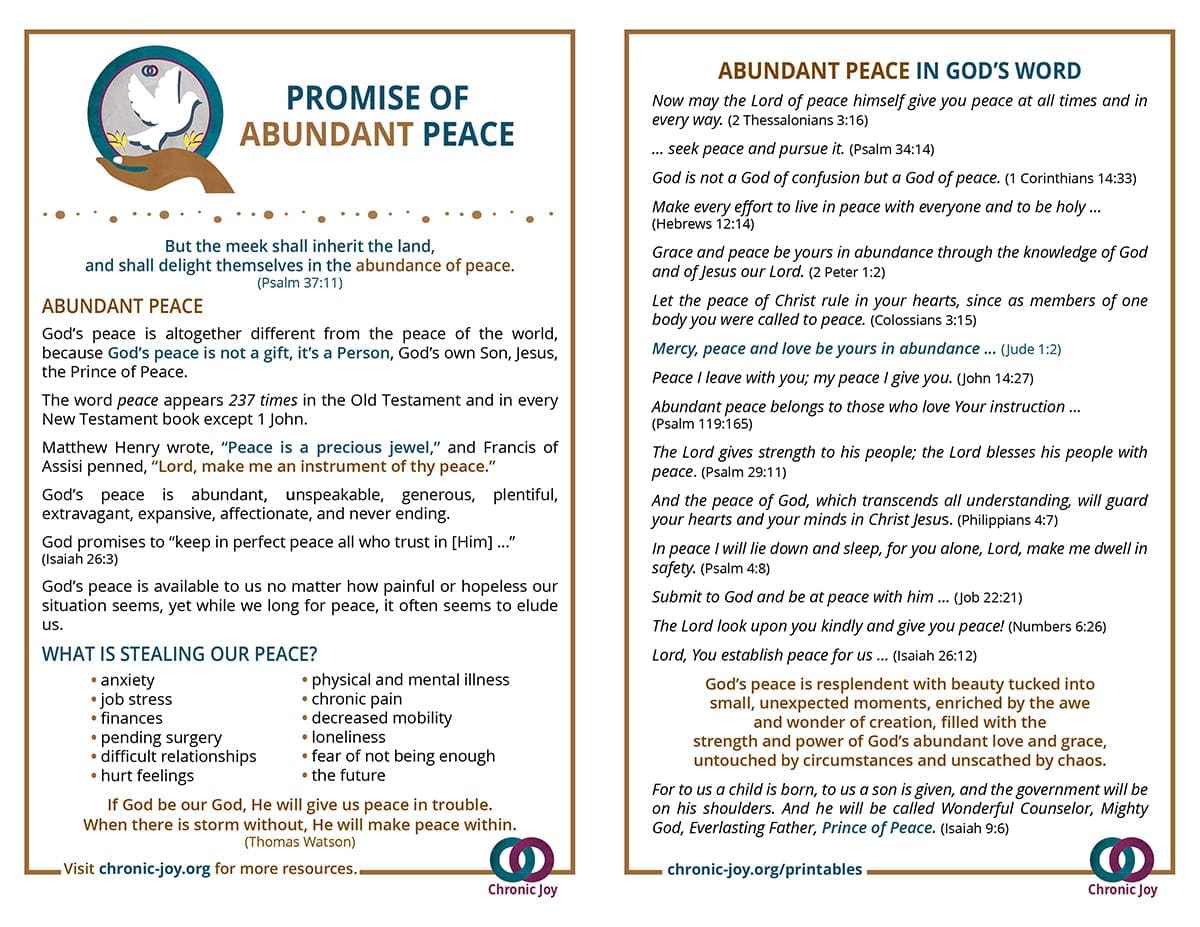
“He will care for you as a shepherd tends his flock, gathering the weak lambs and taking them in his arms. He carries them close to his heart …” Isaiah 40:11 TPT
He will care for you as a shepherd tends his flock, gathering the weak lambs and taking them in his arms.
He carries them close to his heart and gently leads those that have young. (Isaiah 40:11, paraphrased)
THE MOMENT OF DIAGNOSIS
The moment of diagnosis, when it comes to chronic illness sufferers, is life-shattering. Suddenly, all the old pathways have been torn up, and nothing makes sense anymore. You’re on a journey you never asked for, and you’re not sure of the destination. Who can you trust if health and normality can be ripped away with just a few words? In such times, only the hands of God can offer an unshakeable refuge.
I can read an x-ray and tell someone they’ve broken their wrist. I can glance at a CT and tell someone they may have kidney stones. However, I can’t study an MRI and tell someone they have a brain tumor — even if it’s true. I haven’t quite finished my final year of radiography, but I know this much.
MRI FILMS CAUSE CONCERN
“Sorry, I’m going to have to go — I’ve got a few missed calls from my mum, and my sister had an appointment today, so they might be important.” I wave goodbye to my friends outside the lecture hall and squint at my phone screen. I juggle my laptop to my other arm and hit call.
“Hello? It’s me. What’s wrong—”
“Jasmine had her MRI today. They gave us a copy of the MRI as soon as it was over. All the pictures! Is that normal?”
“So, there’s no report yet?”
“No, just the pictures, and Emily, I think she has something.”
“Has something? Has what?”
“I don’t know, I can’t read it properly. I just looked at the brain, and there’s something there — there’s a bright lump in the middle. Is that normal?”
“I don’t know! They use different contrasts to highlight different things. MRIs can look funny sometimes, even though it’s fine, okay?”
“Okay. See you soon.”
Annoying little sisters don’t have “things in their brains.” The very idea eclipses everyday realities, even everyday paradoxes, and lands in the realm of impossibility. The MRI will be normal — it has to be.
WAITING FOR THE MOMENT OF DIAGNOSIS
Once home, I dump my laptop and bag on the dining room floor beneath the calendar overflowing with Mum’s specialist appointments and, more recently, my sister’s. There’s a big white envelope on the phone table. Pulling a chair out at the dining table, I open the envelope and yank the films from their bag.
“There! Do you see it?” Mum jabs a finger from behind.
If ‘it’ was a white, bright (hyperdense, my university lecturer supplies in my ear), round mass in the center of Jasmine’s brain behind her nose, then yes, I see it. All too well.
For goodness sakes. “Mum, it could be anything! It’s probably normal in this scan phase. Or, at the very least, it’s a normal variant. Brains always look odd on MRIs; this doesn’t mean she has a tumor! We don’t know anything. Bodies are complex, and MRIs are hard to read. Even if she does have a tumor, we can’t do anything about it until the doctor tells us. There’s no point in worrying or stressing about it. Besides, think how rare it must be. How could Jasmine have a brain tumor?”
It’s this last appeal to the inviolable script of our lower-middle-class lives that finally relaxes the wrinkles above Mum’s eyes. “You’re right,” she admits. “But still, it would explain a lot of her symptoms…” Jasmine’s under-active thyroid, below-average height, sudden prescription for new glasses, and excessive tiredness hang between us, specters pointing to a devastating end.
“Did the radiographer say anything when she gave you the pictures?”
“She asked if our doctor’s appointment was soon.”
Fiddlesticks. That phrase is classic professional code for, “I am concerned.”
“When is it?”
“Tuesday,” Mum mouths as footsteps sound above us. Jasmine. The front door crashes. Dad’s home — and normality returns.
CONCERNED AND CAN’T SLEEP
My bedroom lights have been off for a while, but sleep won’t come. The MRI was normal, wasn’t it? My earlier, desperate reassurances cycle and recycle before me: flimsy words, terror masquerading as truth.
If Mum’s correct, there will be plenty of time to worry in the future — why start now over a white spot on a scan I can’t read, which is probably not a tumor? I suspect it is.
Bringing my knees up is the only way to squash the rubbery jellyfish lurking in my stomach, pressing on my chest, sending electric currents up my neck.
“It’s a mistake, isn’t it, God? The MRI, the symptoms, but they match up so well!” Don’t jump to conclusions. What happens when you have a tumor? Will she die?
In my small room surrounded by thick, clammy silence, I believe she can. I try to push away the question, but it returns like an annoying computer pop-up. Tumor — brain — death — death — death —
I wish I could believe the comfort I offered Mum, but my mind is not that obliging. Instead, I close my eyes and launch myself into another realm, a realm no less real than the one breaking down around me. I see and create a picture instantaneously: Jasmine, cradled in a pair of ginormous hands — and in this realm beyond physics, I know they are God’s hands, and they will not let her fall.
I hope. Don’t let her die. Don’t let her die.
THE MOMENT OF DIAGNOSIS: TURN TO GOD
Placing you and your loved one in the hands of God during the turmoil of a chronic illness diagnosis doesn’t mean you’ll receive all the answers you long for. It doesn’t mean the future is suddenly comprehensible or that you understand how and why God is working as He is. What it does mean is that you are no longer at the mercy of abnormal scans, condemning Google searches, or frightening medical terms. It means you are not alone in the middle of the night, and you have not been abandoned in your uncertainty. In the hands of God, you have a place to sit and wait, to watch and to pray.
When a diagnosis journey begins, you may not know where it will end, but you can know the direction in which to turn — heavenward.
**Excerpt from Two Sisters & a Brain Tumour. Published with permission.


Emily J. Maurits
Contributing Writer
After working for several years in public health, Emily is studying theology. She believes we are all called to love suffering people because it is what Jesus did. She is passionate about equipping and encouraging others to do just that and founded calledtowatch.com for the family and friends of those with chronic illness. As well as uncovering God's presence in the chaos of life, she enjoys reading, running, and writing. Check out her memoir Two Sisters & a Brain Tumour.

Called to Hope
Biblical hope is a settled, determined, and enduring confidence in who Jesus is and what He has promised. Our hope is in Christ alone. The mystery is Christ in us, the hope of glory. (Colossians 1:27)

Promise of Abundant Peace
God’s peace is altogether different from the peace of the world because God’s peace is not a gift; it’s a person: God’s own Son, Jesus, the Prince of Peace. God’s peace is abundant, unspeakable, generous, plentiful, extravagant, lavish, expansive, affectionate, and never-ending.

Recent Comments